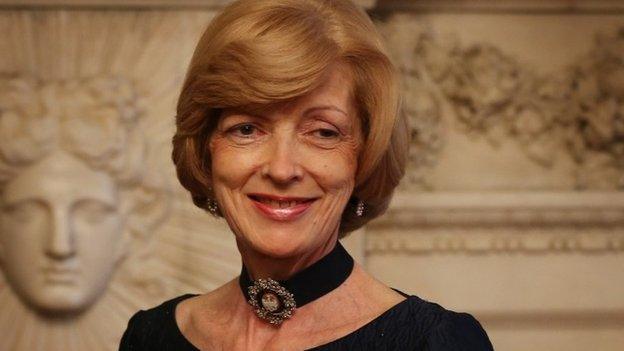Child abuse inquiry: Survivors want new panel and extra powers
- Published
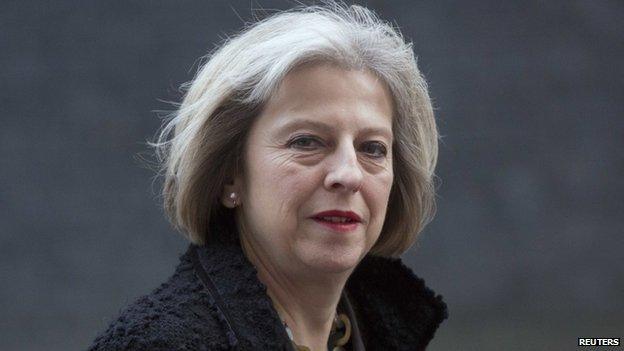
Labour has criticised Theresa May for failing to get the inquiry "off the ground"
Dozens of child abuse survivors have urged the government to scrap an inquiry into historical abuse and replace it with a more powerful body.
The call comes after Home Secretary Theresa May told inquiry members their panel might be disbanded.
Peter Saunders, from the National Association for People Abused in Childhood, said the move would be supported by the majority of survivors.
Labour MP Simon Danczuk called the handling of the probe an "utter mess".
Mr Danczuk, who exposed child sex abuse allegations against former Liberal MP Cyril Smith, told Radio 4's Today programme that survivors would be "dismayed" by the progress of the inquiry - which was set up in July and has started work, but has no-one to chair it.
'Very good people'
He later told BBC Radio 5 live that the government's organisation and handling of the issue was "verging on a disgrace".
Mr Saunders said he had not met any survivors who currently had any confidence in the process and panel.
"There are some very good people on that panel as it stands at the moment, but there are one or two characters who sadly have an association with the past that would make them inappropriate," he said.
It would not "take us back to square one" if the panel was disbanded, he said, and added that getting the inquiry set up correctly would ultimately win the support of survivors.
But former children's minister and Tory MP Tim Loughton said all survivors he had spoken to wanted to get the inquiry going.
Peter Saunders: "Theresa May has my and many other people's backing"
In the letter to Home Secretary Theresa May, survivors, survivors' groups and associated professionals call for a new inquiry with the power to "compel witnesses to give evidence under oath".
It is "essential" the inquiry has these legal powers to "prevent evidence being withheld or tampered with", they say.
The letter also says they would welcome a "dedicated police team" to investigate and prosecute offenders alongside the inquiry.
It is also "essential" that those conducting the inquiry "are free from strong links to prominent establishment figures or any other potential conflict of interest", they add.
Ian McFadyen, abuse survivor and campaigner: "We need an inquiry that has teeth"
The letter calls for the terms of reference to be extended to include allegations of historical abuse dating back as far as 1945, rather than 1970 as is presently the case.
Abuse survivor and campaigner Ian McFadyen, who signed the letter, said the government had "one chance" to get an inquiry like this right, and it needed to have teeth.
Lib Dem MP Tessa Munt, who has revealed she suffered from child abuse, also agreed the inquiry needed greater powers, with people compelled to give evidence under oath.
But former director of public prosecutions Ken McDonald told the BBC he believed the inquiry was heading for a "vale of tears".
"I think the lesson of public inquiries in the past has been if they are not properly focused they don't get anywhere," he said.
He added that it was "extraordinarily difficult" for the police to conduct serious criminal investigations, while a public and "very voluble" inquiry was going over the same material at the same time.
The inquiry, sparked by claims of paedophiles operating in Westminster in the 1980s, is set to investigate whether "public bodies and other non-state institutions have taken seriously their duty of care to protect children from sexual abuse in England and Wales".
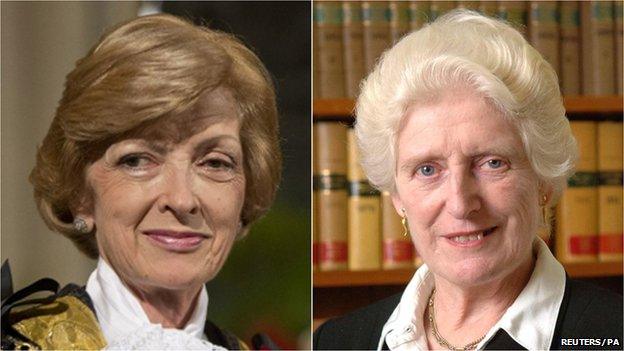
Fiona Woolf and Baroness Butler-Sloss have both stepped down from the role of inquiry chairman
In her letter to current panel members, which has been seen by the BBC, Mrs May said she was considering three options to give the inquiry more powers. One did not require the panel to be disbanded.
She acknowledged that the situation had "not been easy" for panel members but said the "confidence of survivors is paramount". An inquiry source told the BBC panel members had been told they could apply for positions on any new panel.
A leaked reply to Mrs May from panel member Sharon Evans, who runs a children's charity and suffered abuse, says halting the inquiry now "would send a very negative message to so many people we have already met".
The first two choices for inquiry chairman stood down.
Baroness Butler-Sloss resigned a week after the inquiry was set up. She faced calls to quit because her late brother, Sir Michael Havers, was attorney general in the 1980s.
Her replacement, Lord Mayor of London Fiona Woolf, was appointed in September. But on 31 October she stood down amid questions over her links to former Home Secretary Lord Brittan.
The current panel members, external include:
Graham Wilmer - an author of several books on child abuse, he also set up the charity the Lantern Project to help victims of abuse
Barbara Hearn - spent 20 years in social work in local government and a further 21 years with a particular focus on children
Ivor Frank - a barrister with 40 years' experience in family, human rights and international law
Professor Jenny Pearce - professor of young people and public policy at the University of Bedfordshire
Drusilla Sharpling - an inspector for Her Majesty's Inspectors of Constabulary and chairwoman of the national rape monitoring group
Sharon Evans - former journalist and chief executive of the Dot Com Children's Foundation which helps to prevent children from becoming victims
Dame Moira Gibb - former chief executive of the London Borough of Camden and lecturer in social work
Professor Terence Stephenson - author, lecturer in child health and consultant in general paediatrics
Under the current set-up, the eight panel members would be assisted by Professor Alexis Jay as an expert adviser and Ben Emmerson QC as counsel
- Published21 December 2014
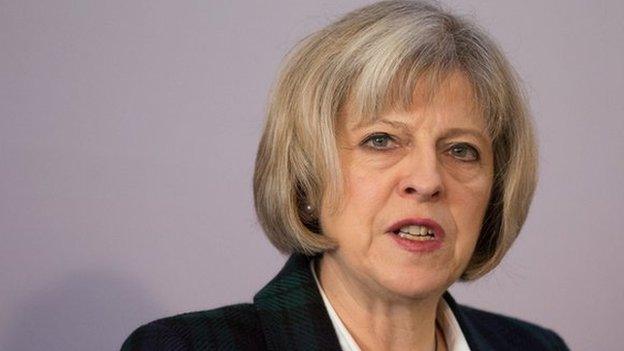
- Published15 December 2014
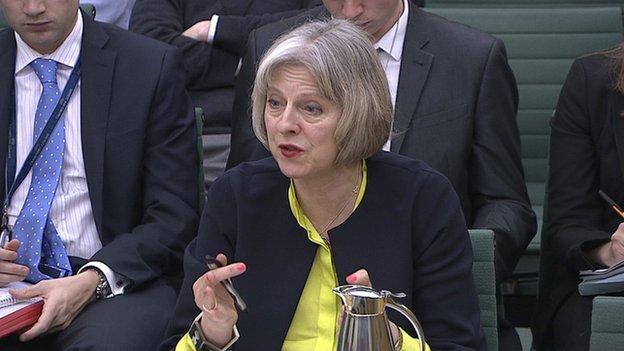
- Published25 November 2014
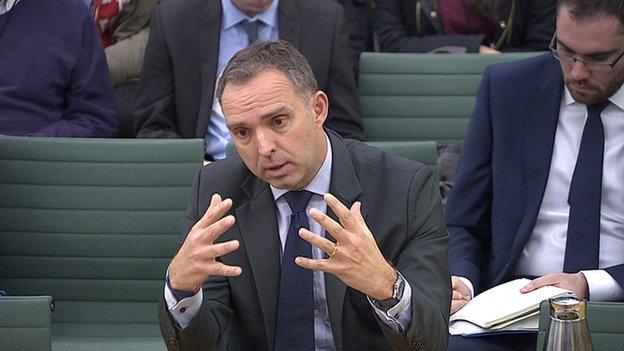
- Published3 November 2014
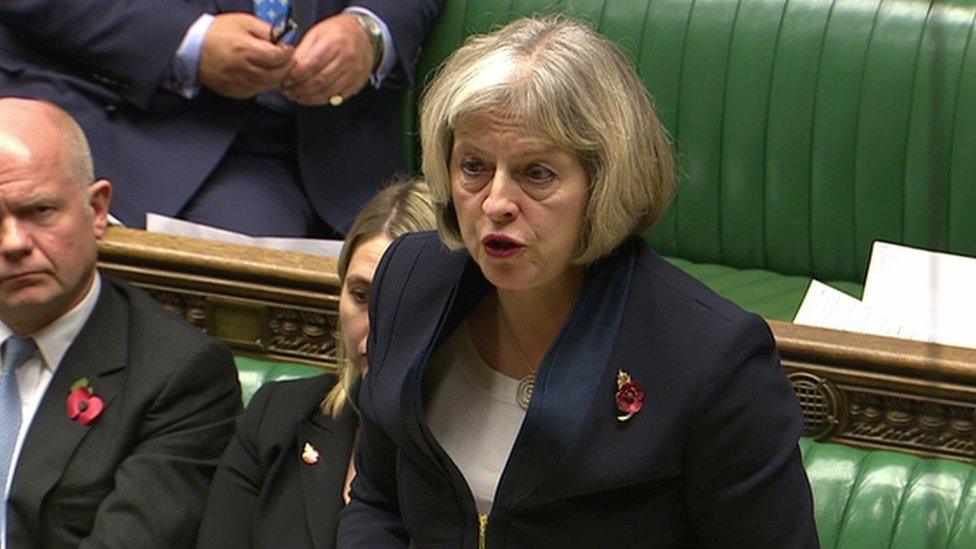
- Published2 November 2014
